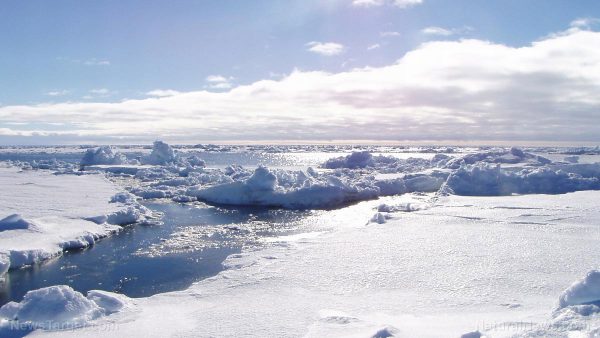 Parler
Parler Gab
Gab
Earth's stabilizing feedback cancels out global warming
The results are the first to employ actual data to verify the existence of a stabilizing feedback. This stabilizing feedback would help explain how the Earth has remained habitable through dramatic climate changes in the geologic past. "On the one hand, it's good because we know that today's global warming will eventually be canceled out through this stabilizing feedback. But on the other hand, it will take hundreds of thousands of years to happen, so not fast enough to solve our present-day issues," Arnscheidt said. (Related: Theory of annual rise in Earth's temperature due to climate change is now exhaustively DISPROVED.) Without stabilizing feedbacks, fluctuations in global temperature should evolve with timescale. But the team's investigation disclosed a system in which fluctuations did not develop, indicating that a stabilizing mechanism dominated the climate before fluctuations became too extreme. The timescale for this stabilizing effect – hundreds of thousands of years – corresponds with what scientists forecast for silicate weathering. Moreover, the study by Arnscheidt and Rothman disproves claims put forward by climate alarmists such as activist Greta Thunberg, former Vice President Al Gore and Microsoft co-founder Bill Gates. The study's publication came amid a leaked video of Gates disclosing that the clean energy movement is a scam to further advance the interests of the global elites. Follow ClimateScienceNews.com for more studies that debunk the global warming narrative. Watch this video exposing global warming temperature data as science fraud.More related stories:
Carbon dioxide levels have nothing to do with global temperatures, top scientist says. Due to changes in solar cycles, Earth could enter a period of GLOBAL COOLING, scientists warn. ALL official climate models radically over-predict warming, analysis reveals. Sources include: NewsPunch.com Science.org News.MIT.edu Brighteon.comMineral oil offers a cheaper, more effective way of saving citrus trees from white snails
By Franz Walker // Share
French study looks at potential for fully covid jabbed to “shed” byproducts onto others
By Ethan Huff // Share
Scientists find MICROPLASTICS in samples taken near Antarctica
By Kevin Hughes // Share
If mRNA is now being found in breast milk, then covid “vaccine” safety claims are lies
By Ethan Huff // Share
Governments continue to obscure COVID-19 vaccine data amid rising concerns over excess deaths
By patricklewis // Share
Tech giant Microsoft backs EXTINCTION with its support of carbon capture programs
By ramontomeydw // Share
Germany to resume arms exports to Israel despite repeated ceasefire violations
By isabelle // Share










